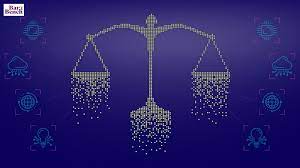“Fine Her in Lakhs”: Exploring the Legal, Ethical, and Societal Implications of Punitive Fines

The phrase “Fine her in lakhs” encapsulates a sentiment often expressed in response to perceived wrongdoing or misconduct, suggesting that individuals or entities should be penalized with hefty fines in the millions. While the concept of imposing punitive fines as a form of deterrence or punishment is not new, the widespread use of social media and digital platforms has amplified public discourse around the issue, sparking debates about the appropriateness, effectiveness, and fairness of imposing financial penalties in the millions. In this analysis, we’ll delve into the legal, ethical, and societal implications of “fine her in lakhs,” examining the rationale behind punitive fines, the challenges they pose, and alternative approaches to achieving justice and accountability.
The Rationale Behind Punitive Fines
Punitive fines, also known as exemplary or punitive damages, are intended to punish wrongdoing, deter future misconduct, and provide a sense of justice to victims or affected parties. By imposing significant financial penalties, authorities seek to send a strong message that certain behaviors or actions will not be tolerated and will be met with severe consequences. In cases of corporate malfeasance, punitive fines may also serve as a deterrent to unethical or unlawful conduct, incentivizing companies to comply with regulations and uphold ethical standards.
Challenges and Controversies
- Disproportionate Impact: Imposing punitive fines in the millions can have a disproportionate impact on individuals or entities, particularly those with limited financial resources. While large corporations may be able to absorb such fines without significant financial hardship, smaller businesses or individuals may face bankruptcy or financial ruin as a result of excessive penalties.
- Legal and Ethical Considerations: Determining the appropriate amount of punitive fines raises complex legal and ethical questions, including considerations of proportionality, due process, and fairness. Excessive fines may violate constitutional principles or international human rights standards, infringing on individuals’ rights to fair and just treatment under the law.
- Efficacy and Enforcement: Critics argue that punitive fines may not always achieve their intended goals of deterring misconduct or promoting accountability. In cases where fines are perceived as merely a cost of doing business or where enforcement mechanisms are weak or ineffective, punitive measures may fail to address underlying systemic issues or prevent future wrongdoing.
Alternative Approaches to Accountability
- Restitution and Compensation: Instead of relying solely on punitive fines, authorities could prioritize restitution and compensation for victims or affected parties as a means of achieving justice and accountability. Restitution aims to restore individuals or entities to the position they were in before the harm occurred, while compensation provides financial redress for losses or damages suffered.
- Regulatory and Compliance Measures: Strengthening regulatory oversight and compliance mechanisms can help prevent misconduct and promote ethical behavior without resorting to punitive fines. By implementing robust regulatory frameworks, enforcing compliance with laws and regulations, and holding individuals and entities accountable for their actions, authorities can mitigate the need for punitive measures.
- Educational and Preventative Interventions: Investing in education, awareness-raising, and preventative interventions can address root causes of misconduct and promote a culture of ethical behavior and accountability. By fostering a culture of integrity, transparency, and accountability, societies can reduce the incidence of wrongdoing and minimize the need for punitive measures.
Conclusion
While the sentiment of “fine her in lakhs” reflects a desire for justice and accountability in response to perceived wrongdoing, the appropriateness and effectiveness of punitive fines warrant careful consideration. While punitive fines can serve as a deterrent to misconduct and provide redress for victims, they also raise legal, ethical, and practical challenges that must be addressed. By exploring alternative approaches to achieving justice and accountability, societies can promote fairness, proportionality, and effectiveness in addressing wrongdoing while upholding fundamental principles of justice and human rights.
| https://www.certs4sale.com/huawei/h12-821_v1.0-pdf-exam-dumps |
| https://www.certs4sale.com/dsci/dcpp-01-pdf-exam-dumps |
| https://www.certs4sale.com/isaca/ccak-pdf-exam-dumps |
FAQs
- What are punitive fines, and how do they differ from other forms of penalties? Punitive fines, also known as exemplary or punitive damages, are financial penalties imposed on individuals or entities as a form of punishment for wrongdoing or misconduct. Unlike compensatory damages, which aim to provide restitution for losses or damages suffered, punitive fines are intended to punish the wrongdoer and deter future misconduct.
- What are some examples of cases where punitive fines have been imposed? Punitive fines may be imposed in cases of corporate malfeasance, environmental violations, consumer fraud, or other forms of unlawful conduct. For example, companies found guilty of deceptive marketing practices or environmental pollution may be ordered to pay punitive fines as a deterrent to future misconduct.
- How are punitive fines determined, and what factors are considered in their calculation? The determination of punitive fines varies depending on the jurisdiction and the specific circumstances of the case. Courts may consider factors such as the severity of the wrongdoing, the financial resources of the defendant, the need for deterrence, and the extent of harm caused to victims or affected parties in determining the appropriate amount of punitive fines.
- What are some criticisms of punitive fines, and how can they be addressed? Critics argue that punitive fines may be disproportionate, ineffective, or unfairly imposed, raising concerns about their legality, efficacy, and ethical implications. To address these criticisms, authorities can explore alternative approaches to achieving justice and accountability, such as restitution, regulatory measures, and educational interventions.
- How can individuals and communities advocate for justice and accountability without relying solely on punitive fines? Individuals and communities can advocate for justice and accountability by promoting ethical behavior, supporting regulatory reforms, and advocating for policies that prioritize restitution, compensation, and preventative interventions. By engaging in dialogue, activism, and advocacy, individuals can contribute to creating a more just and equitable society.





